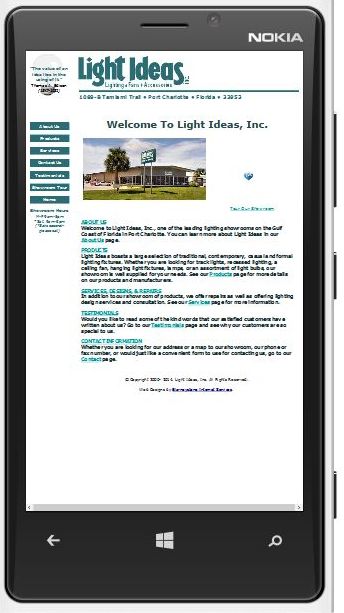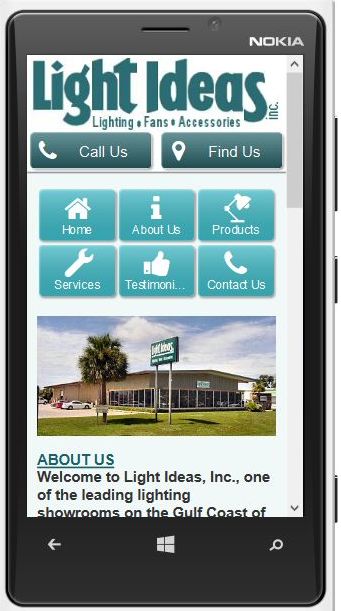Which is Better – an App or a Mobile (Responsive) Website?
When it comes to deciding whether to build a native app or a mobile website, the most appropriate choice really depends on your end goals. If you are developing an interactive game an app is probably going to be your best option. But if your goal is to offer mobile-friendly content to the widest possible audience then a mobile website is probably the way to go. In some cases you may decide you need both a mobile website and a mobile app, but it’s pretty safe to say that it rarely makes sense to build an app without already having a mobile website in place. Generally speaking, a mobile website should be considered your first step in developing a mobile web presence, whereas an app is useful for developing an application for a very specific purpose that cannot be effectively accomplished via a web browser.
Advantages of a Mobile Website vs. Native Apps
If your goals are primarily related to marketing or public communications, a mobile/responsive website is almost always going to make sense as a practical first step in your mobile outreach strategy. This is because a mobile website has a number of inherent advantages over apps, including broader accessibility, compatibility and cost-effectiveness.
Mobile Websites Are Instantly Available
A mobile website is instantly accessible to users via a browser across a range of devices (iPhone, Android, BlackBerry, etc). Apps on the other hand require the user to first download and install the app from an app marketplace before the content or application can be viewed - a significant barrier between initial engagement and action/conversion.
Compatibility – Mobile Websites are Compatible Across Devices
A single mobile website can reach users across many different types of mobile devices, whereas native apps require a separate version to be developed for each type of device. Furthermore, mobile website URLs are easily integrated within other mobile technologies such as SMS, QR Codes and near field communication (NFC).
Upgradability – Mobile Websites Can Be Updated Instantly
A mobile website is much more dynamic than an app in terms of pure flexibility to update content. If you want to change the design or content of a mobile website you simply publish the edit once and the changes are immediately visible; updating an app on the other hand requires the updates to be pushed to users, which then must be downloaded in order to update the app on each type of device.
Findability – Mobile Websites Can be Found Easily
Mobile websites are much easier for users to find because their pages can be displayed in search results and listed in industry-specific directories, making it easy for qualified visitors to find you. Most importantly, visitors to your regular website can be automatically sent to your mobile site when they are on a handheld (using device-detection). In contrast, the visibility of apps are largely restricted to manufacturer app stores.
Shareability – Mobile Websites Can be Shared Easily by Publishers, and Between Users
Mobile website URLs are easily shared between users via a simple link (e.g. within an email or text message, Facebook or Twitter post). Publishers can easily direct users to a mobile website from a blog or website, or even in print. An app simply cannot be shared in this fashion.
Reach – Mobile Websites Have Broader Reach
Because a mobile website is accessible across platforms and can be easily shared among users, as well as search engines, it has far greater reach capability than a native app.
Life Cycle – Mobile Websites Can’t be Deleted
The average shelf-life of an app is pretty short, less than 30 days according to some research, so unless your app is something truly unique and/or useful (ideally, both), it’s questionable how long it will last on a user’s device. Mobile websites on the other hand are always available for users to return to them.
A Mobile Website Can be an App!
Just like a standard website, mobile websites can be developed as database-driven web applications that act very much like native apps. A mobile web application can be a practical alternative to native app development.
Time and Cost - Mobile Websites are Easier and Less Expensive
Last but certainly not least, mobile website development is considerably more time and cost-effective than development of a native app, especially if you need to have a presence on different platforms (requiring development of multiple apps).
Support and Maintenance
The investment considerations of app vs website don’t end with the initial launch; properly supporting and maintaining an app (upgrades, testing, compatibility issues and ongoing development) is more much more expensive and involved than supporting a website over time.
from HUMAN SERVICE SOLUTIONS












